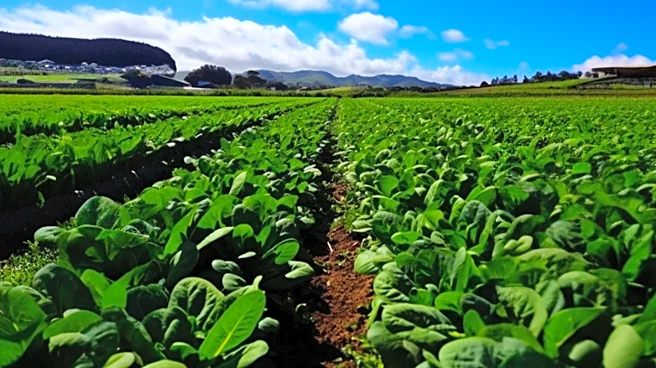What's Happening?
Plantation agriculture played a pivotal role in shaping the American South's identity and economy from the 1600s onwards. Initially emerging in Virginia and Maryland, this system expanded throughout the Southern Colonies, focusing on cash crops like tobacco
and later cotton. The plantation model relied heavily on organized labor systems, including enslaved people, which significantly influenced the social and economic dynamics of the region. The rise of cotton cultivation in the 19th century further entrenched the plantation economy, making cotton a dominant export and linking the South to global trade networks.
Why It's Important?
Understanding the historical impact of plantation agriculture is crucial for comprehending the development of American agriculture and its socio-economic implications. The plantation system established patterns of land ownership and labor that have long-lasting effects on rural economies and social structures. It also highlights the ethical and human costs associated with agricultural expansion, particularly the reliance on enslaved labor. This historical context is essential for current discussions on land use, labor rights, and economic disparity in rural America, as well as for appreciating the evolution of agricultural practices.















